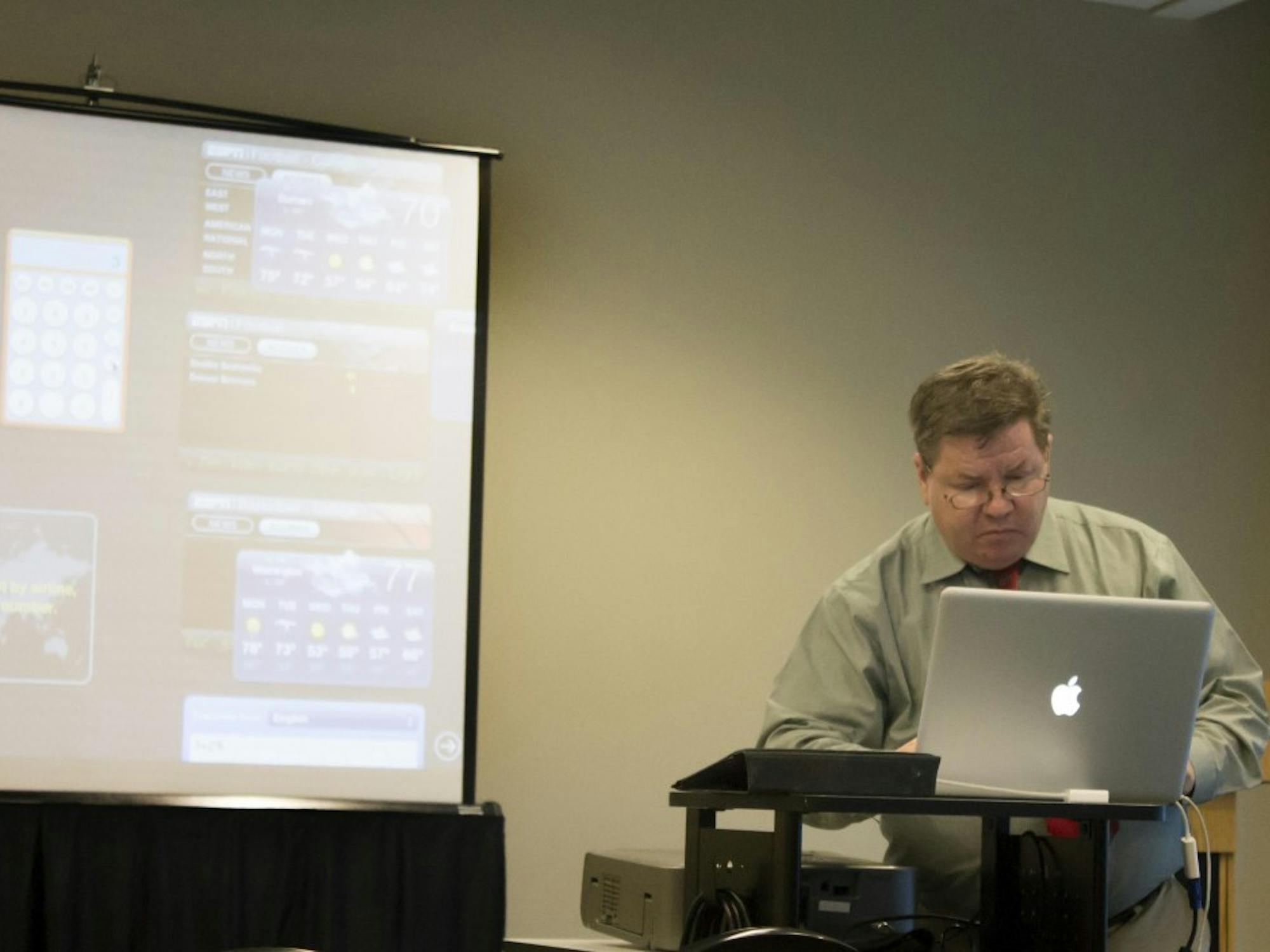Robert M. Panoff, Ph.D., came to Eastern Michigan University’s Student Center Monday to present a dynamic and interactive visual approach to enhance how people interact with the world.
Panoff’s presentation, entitled “Computational Thinking for All: The Power and the Peril” was sponsored by Shodor, a non-profit organization in Durham, N.C.
Panoff addressed the use of search engines to find information.
Using a navigational webpage, Panoff showed Shodor’s software goals to advance math and science, and how their tools are a vessel for finding information using computational science education.
Panoff explained what he calls the universal theory of anything, which is to find the right answer and use the wrong answer to make the corrections.
Panoff used the example of Order of Operations to explain his theory.
The Order of Operations is a mathematical standard that determines the outcome of an equation. If the Order of Operations is not used, the answers will vary.
“The values you get in a scientific experiment depend on the design of the experiment,” Panoff said.
Panoff illustrated how Google does not always have the same or accurate information. Based on a simple search of the mass of the planet Mars, Panoff proved that with each single search he found articles, computations from the Google calculator and Wikipedia results to expose the difference in the scientific notations.
“These are small differences. If it mattered, we’d be in danger,” Panoff said.
Panoff made a point in regard to what he referred to as the “so-called facts” online. He said there is no information on the Internet. According to Panoff, there are sources that you can use to make judgments. Panoff believes information is the result of a human judgment.
“If more and more people can put stuff on the Internet, what reason do you have to believe it?” Panoff asked.
This is why humans need to use computation as a tool that enables active-thinking human beings to come to a conclusion, rather than letting the technology completely take over.
Panoff said that Shodor’s main prerogative is to make dynamic visual interactive learning and save time in the processing of data. Using Shodor’s multiple platforms, the user can create multiple graphing visuals to analyze data.
Three of the platforms, entitled “Math Flyer,” “Slope Slider,” and “Flabido,” are available in the iTunes App Store. To see more information, visit Shodor.org, and to see a copy of his presentation, visit Shodor.org/talks/CTA.








